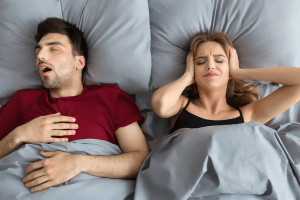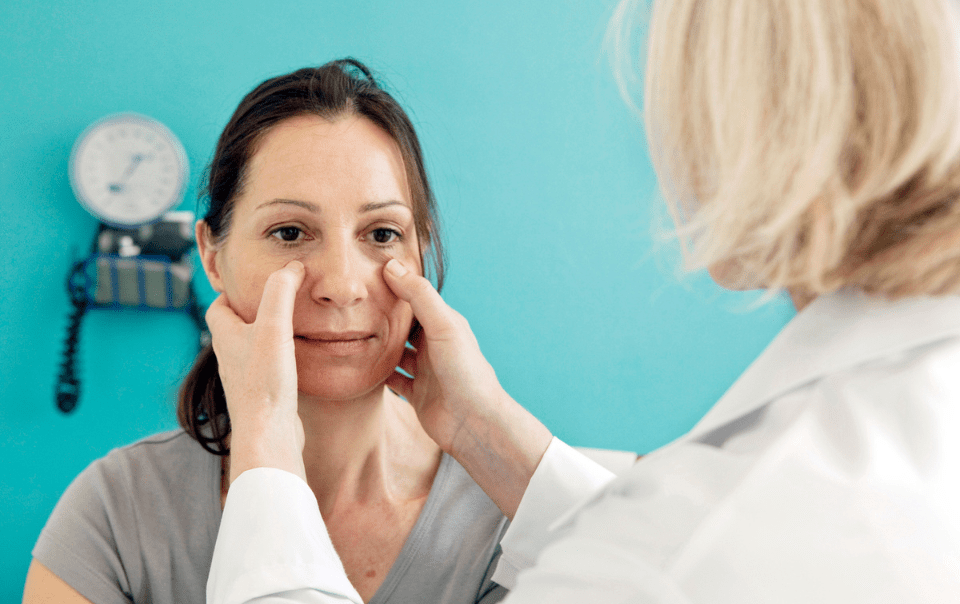Sinus infections can be quite bothersome to deal with, especially when you consider the symptoms. Though the most common signs of sinus infections include nasal congestion, facial pain, and reduced sense of smell, many are unaware that there is an additional possible consequence of snoring. If you experience issues with sinus or snoring, it’s time for you to see a sinus specialist in Los Angeles.
Understanding the relationship between sinusitis and snoring is crucial, as snoring can significantly impact sleep quality and overall health. This article delves into how sinusitis can contribute to snoring problems, explores the mechanisms involved, and discusses potential treatments.
Sinusitis Infections
Sinusitis, also known as rhinosinusitis, involves the inflammation of the tissue lining the sinuses. This condition can be acute (lasting up to four weeks), subacute (four to twelve weeks), or chronic (lasting more than twelve weeks). The sinuses are air-filled spaces in the bones around the nose and eyes. They produce mucus, which drains into the nasal passages to keep them moist and trap pathogens. When the sinuses become inflamed, mucus production increases and drainage can become blocked, leading to congestion and other symptoms.
Infections: Viral, bacterial, or fungal infections can cause sinusitis.
Allergies: Allergic reactions can lead to inflammation and swelling of the nasal passages, causing sinusitis.
Nasal Polyps: Growths in the nasal passages can block mucus drainage.
Deviated Septum: A deviation in the nasal septum can restrict or block sinus passages.
Environmental Factors: Pollutants, smoke, and other irritants can contribute to sinus inflammation.
Sinus specialists in Los Angeles can diagnose and provide treatments to alleviate any congestion and blockages to improve your ability to breathe and sleep easier.
The Link Between Sinusitis and Snoring
Snoring occurs when airflow through the mouth and nose is partially obstructed during sleep. This obstruction causes the tissues in the throat to vibrate, producing the characteristic snoring sound. Several factors associated with sinusitis can lead to or worsen snoring.
Nasal Congestion and Obstruction
A primary symptom of sinusitis is nasal congestion, which can severely restrict airflow through the nasal passages. Individuals experiencing nasal congestion are more likely to breathe through their mouths while sleeping. This is due to an increase in pressure in the upper airway causing the soft membranes more likely to collapse during sleep. Also, mouth breathing increases the likelihood of snoring because it further constricts the airway and increases tissue vibration.
Upper Airway Inflammation and Swelling
Sinusitis can cause inflammation and swelling of the nasal passages and surrounding tissues. This swelling can reduce the size of the airway and increase the effort needed to breathe. The reduced airway space and increased breathing effort during sleep can cause snoring. Research shows that inflammation in the upper airway, often seen in sinusitis, can exacerbate sleep-disordered breathing, including snoring and obstructive sleep apnea (OSA).
Mucus Production and Post Nasal Drip
Excess mucus production is a hallmark of sinusitis. This occurs when mucus accumulates in the throat, causing irritation and swelling. Postnasal drip, where mucus drips down the back of the throat, can also occur. This condition can lead to throat irritation and swelling, contributing to a narrowing of the airway and increased snoring.
Diagnosing the Cause of Snoring

A thorough medical history and physical examination are crucial first steps. This assessment can help identify any underlying conditions, such as sinusitis, that might be contributing to snoring. Imaging studies, such as X-rays, CT scans, or MRI, can provide detailed views of the sinuses and nasal passages. These studies can help identify any structural abnormalities or inflammation that might be contributing to sinusitis and snoring.
A sinus specialist in Los Angeles may also recommend a sleep study (polysomnography) to evaluate the severity of snoring and rule out other sleep disorders, such as obstructive sleep apnea. This study records various physiological parameters during sleep, including airflow, blood oxygen levels, and brain activity.
Treatment Options for Sinusitis and Snoring
Treating sinusitis effectively can help alleviate snoring caused by the condition. Treatment options vary depending on the severity and cause of sinusitis.
Medications
- Decongestants can reduce nasal congestion and improve airflow. They are available over-the-counter or by prescription.
- Nasal corticosteroids are sprays that reduce inflammation and swelling in the nasal passages, helping to alleviate congestion.
- Antibiotics are for sinusitis infections caused by bacterial infections.
- Antihistamines are for sinusitis caused by allergies. Antihistamines can help reduce allergic reactions and inflammation.
Home Remedies
- Saline Nasal Irrigation rinses can help clear mucus and reduce congestion.
- Steam inhalation can help open up nasal passages and relieve congestion.
- Proper hydration can help thin mucus and promote drainage.
- Warm Compresses on the face can help relieve sinus pressure and pain.
For chronic or severe cases of sinusitis that do not respond to medical treatment, surgical interventions may be necessary. These include:
Functional Endoscopic Sinus Surgery (FESS): This minimally invasive procedure involves using an endoscope to remove blockages and improve sinus drainage.
Balloon Sinuplasty: This procedure involves inserting a small balloon into the sinus passages and inflating it to open up the passages and improve drainage.
Turbinate Reduction: Enlarged turbinates (structures inside the nose) can be reduced to improve airflow and reduce congestion.
ENT specialists can perform a comprehensive evaluation to determine the underlying cause of snoring and sinusitis. This evaluation may include a detailed medical history, physical examination, and various diagnostic tests.
Based on diagnostic findings, your sinus specialist in Los Angeles will develop a personalized treatment plan that addresses sinusitis and snoring. Depending on the severity of the conditions, this plan may include medical treatments, lifestyle modifications, or surgical interventions.
Followup care is necessary for optimal treatment outcomes and to prevent sinus symptoms and infections from recurring.
Conclusion
Sinusitis can significantly contribute to snoring problems due to its effects on nasal congestion, inflammation, and mucus production. Recognizing the link between these conditions and seeking appropriate treatment from a sinus specialist in Los Angeles is crucial for improving sleep quality and overall health. Contact the Southern California Sinus Institute today for more information.

